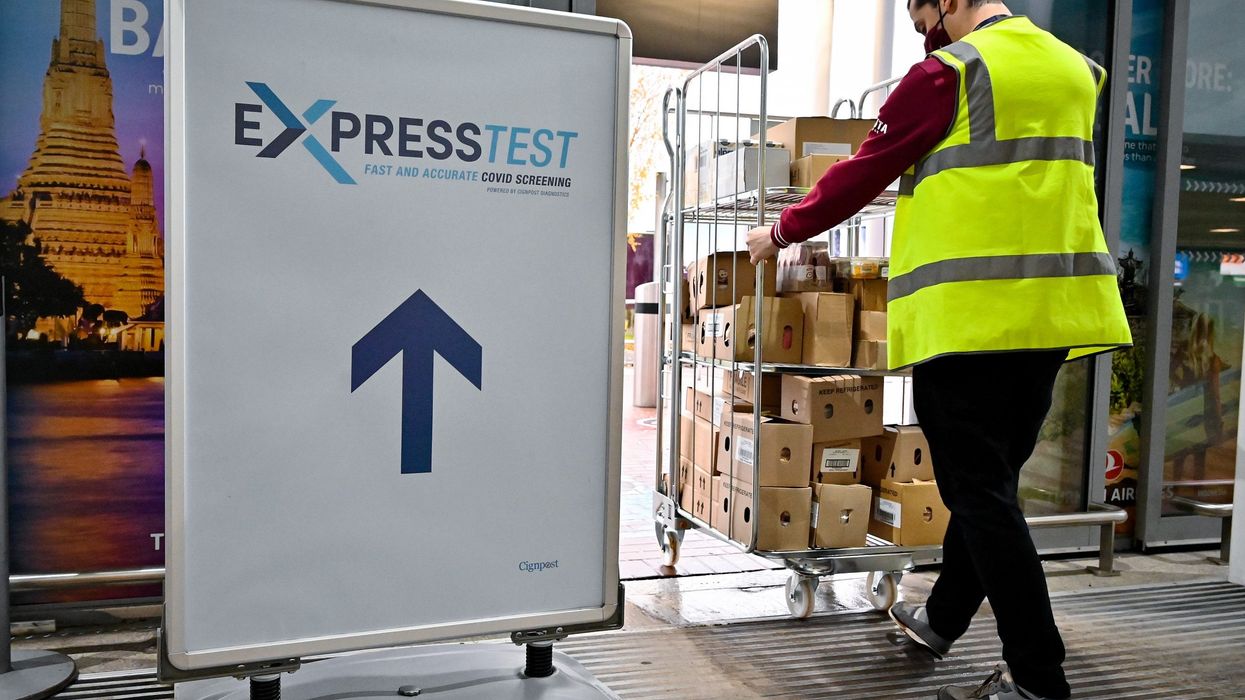THE U.S. IS expected to lift its requirement for pre-departure COVID testing by international travelers bound for the country. Travel industry organizations that have been lobbying for ending the test requirement welcomed the decision announced on Friday.
Beginning Sunday, fully vaccinated travelers will no longer have to test negative before entering the U.S., according to a statement Friday from the Centers for Disease Control and Prevention. Changes in the nation’s recovery from the pandemic led to the change, the CDC said.
“The COVID-19 pandemic has now shifted to a new phase, due to the widespread uptake of highly effective COVID-19 vaccines, the availability of effective therapeutics, and the accrual of high rates of vaccine- and infection-induced immunity at the population level in the U.S.,” the statement said. “Each of these measures has contributed to lower risk of severe disease and death across the United States. As a result, this requirement which was needed at an earlier stage in the pandemic may be withdrawn. CDC continues to recommend that those travelers boarding a flight to the U.S. get tested for current infection with a viral test as close to the time of departure as possible (no more than 3 days) and not travel if they are sick.”
The CDC said it will continue to evaluate the status of the pandemic and will reassess the need for a testing requirement if the situation changes.
After learning of the plan to lift the testing requirement, the U.S. Travel Association, which last month met with White House officials, along with Airlines for America, to make their case against the pre-departure testing said in a statement that the decision was expected to add 5.4 million visitors to U.S. and $9 billion in travel spending through remainder of 2022.
“Today marks another huge step forward for the recovery of inbound air travel and the return of international travel to the U.S. The Biden administration is to be commended for this action, which will welcome back visitors from around the world and accelerate the recovery of the U.S. travel industry,” said Roger Dow, USTA president and CEO. “International inbound travel is vitally important to businesses and workers across the country who have struggled to regain losses from this valuable sector. More than half of international travelers in a recent survey pointed to the pre-departure testing requirement as a major deterrent for inbound travel to the U.S.”
Dow also said removing the pre-departure testing would help the overall economy by helping the travel industry recover.
“Prior to the pandemic, travel was one of our nation’s largest industry exports. The lifting of this requirement will enable the industry to lead the way toward a broader U.S. economic and jobs recovery,” Dow said. “A new analysis found that repealing the pre-departure testing requirement could bring an additional 5.4 million visitors to the U.S. and an additional $9 billion in travel spending through the remainder of 2022.”
The American Hotel & Lodging Association endorsed the decision to end the testing, calling it a “significant win for hotels and the broader travel industry” in its statement.
“AHLA consistently called on the administration and Congress to lift this testing requirement, which was out of date and had a chilling effect on inbound international travel to the U.S.,” said Chip Rogers, AHLA’s president and CEO. “Lifting the requirement will make travel easier, facilitating more international visitors and helping hotels continue on the road to recovery, especially as we approach peak travel season this summer.”
In April, shortly after a federal judge in Florida overturned the federal mask mandate for airplanes and other forms of transportation, crisis response provider Global Rescue’s “Global Rescue Spring 2022 Traveler Sentiment and Safety Survey” found that 32 percent of respondents wanted the U.S. government to immediately eliminate the pre-departure tests.
"The decision to end the requirement for a negative COVID test to enter the United States is long overdue and a welcome step toward recognizing the decreasing severity of the disease, the urgent need to restore confidence for travelers, and support for an industry badly damaged by the pandemic,” said Dan Richards, CEO of Global Rescue and a member of the U.S. Travel and Tourism Advisory Board at the U.S. Department of Commerce. "After many months of negative COVID tests not being required in virtually every other aspect of American life, the administration has finally decided to end its testing requirement for international travelers arriving in the U.S. This is long overdue and has been a barrier to the recovery of international travel globally."
Editor’s note: This story has been updated to include the statement from the Centers for Disease Control and Prevention.






